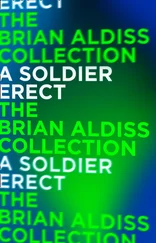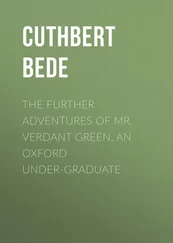I told him one hour more and I was a deserter; but it was no good, he wouldn't listen. So I picked up a stone, turned to a shop window and said to the cop, "If you don't arrest me, I'll smash this window in one second flat."
"The boy's crazy. Come along, young fellow; the station for you."
But it was for having stretched a cap to make it prettier that they sent me to the disciplinary sections at Calvi, in Corsica. No one can doubt that this was my first step toward the penal settlement.
They called the disciplinary section _la cam ise_, and you had a special uniform. As soon as you got there you went in front of a reception committee, and they decided whether you were to be rated a genuine cam isard. You had to prove you were a man by fighting two or three seniors one after another. With my training at the Crest high school, I did pretty well. During the second fight, when my lip was split and my nose a bleeding mess, the seniors stopped the test. I was rated genuine _cam isard_.
_La camise_. I worked in a Corsican senator's vineyards from sunrise to sunset: no break, no little favors; the difficult sort had to be brought to heel. We weren't even sailors anymore: we belonged to the 173 Infantry Regiment at Bastia. I can still see that citadel at Calvi, our three-mile walk, pick or shovel on our shoulder, to Calenzana, where we worked, and our quick march back to the prison. It was unendurable, we rebelled; and as I was one of the ringleaders, I was sent, along with a dozen others, to a still tougher disciplinary camp at Corte.
A citadel right up on top of the mountain: six hundred steps to go up and down twice a day to work at making a playing field for the enlisted men near the station.
It was when I was in that hell, with that herd of brutes, that a civilian from Corte secretly passed me a note: "Darling, if you want to get out of that horrible place, cut off your thumb. The law is that the loss of a thumb, with or without preservation of the metacarpal, automatically brings about transfer to the auxiliaries; and if this injury is caused by an accident in the course of duty, it brings about permanent incapacity for armed services and therefore discharge. Law of 1831, circular of July 23, 1883. I am waiting for you. Clara. Address, Le Moulin Rouge, Quartier Réservé, Toulon."
I did not delay. Our work consisted of digging about two cubic yards of earth out of the mountain every day and wheeling it off in barrows to a place fifty yards away, where trucks took away everything that wasn't needed for leveling the ground. We worked in teams of two. I must not cut off my thumb with an edged tool, or I should be accused of self-mutilation, and that would cost me another five years of _la camise_.
My Corsican mate, Franqui, and I started on the mountain at the bottom, and we dug a fair-sized cave into it. One more blow with the pick and everything above would fall in on me. The supervising NCOs were tough: Sergeant Albertini was just two or three yards behind us. This made the job tricky but also afforded one advantage-if all went well, he would be an impartial witness.
Franqui put a big stone with a fairly sharp edge under an overhanging piece; I laid my left thumb on it and stuffed my handkerchief into my mouth so as not to let out the least sound. There would be five or six seconds for us to bring the whole mass of earth down on me. Franqui was going to smash my thumb with another stone weighing about twenty pounds: it could not fail. They would be forced to amputate it even if the blow did not take it off entirely.
The sergeant was three yards away from us, scraping earth off his boots. Franqui grasped the stone, lifted it up as high as it would go and brought it down. My thumb was a shattered mess. The sound of the blow mingled with the noise of the pickaxes all round, and the sergeant saw nothing. Two swings with the pick and the earth came down all over me. I let myself be buried. Bellowing, shouts for help: they dug for me and at last I appeared, covered with earth and my thumb destroyed. And I was suffering like a soul in hell. Still, I did manage to say to the sergeant, "They'll say I did it on purpose: you see."
"No, Charrière. I saw the accident: I'm a witness. I'm tough but I'm fair. I'll tell them what I saw, never you fear."
Two months later, discharged with a pension and with my thumb buried at Calvi, I was transferred to the No. 5 Depot at Toulon, and there they let me go.
I went to say thank you to Clara at the Moulin Rouge. She was of the opinion that nobody would even notice the absence of a thumb on my left hand, and that I could make love as well with four fingers as with five. That's what really mattered.
"You've changed in some way, Riri. I can't quite tell how. I hope your three months with those undesirables have not left too many traces."
There I was with my father in my childhood home: I had hurried back after my discharge. Was there some deep change in me? "I can't tell you, Papa: I don't know. I think I'm more violent and less willing to obey the rules of life you taught me when I was a little boy. You must be right: something has changed in me. I feel it, being here in this house, where we were so happy with Mama and my sisters. It doesn't hurt as much as it used to. I must have grown harder."
"What are you going to do?"
"What do you advise?"
"Find a position as soon as possible. You're twenty now, my boy."
Two exams. One at Privas for the post office; the other at Avignon for a civilian job in the military administration. Grandfather Thierry went with me.
Both the written and the oral parts went very well. I was playing the game; I had no objection to following my father's advice-I'd be a civil servant and lead a proper, honorable life. But now I can't help wondering how long the young Charrière would have stayed a civil servant with everything that was boiling up inside him.
When the morning post brought the results of the exam, my delighted papa decided to have a little party in my honor. A huge cake, a bottle of real champagne and a colleague's daughter invited to the feast. "She would make a fine wife for my boy." For the first time for ten years, the house bubbled with joy.
I walked around the garden with the girl Papa dreamed of as a daughter-in-law, a girl who might make his little boy happy. She was pretty, well brought up and very intelligent.
Two months later, the bombshell! "Since you have not been able to provide our central office with a good-conduct certificate from the navy, we regret to inform you that you cannot enter our service."
After the letter came, shattering all his illusions, Papa was sad, saying very little. He was suffering.
Why go on like this? Quick, a suitcase and a few clothes: take advantage of the teachers' meeting at Aubenas and get out.
My grandmother caught me on the stairs. "Where are you going, Henri?"
"I'm going somewhere where they won't ask me for a goodconduct certificate from the navy. I'm going to see one of the men I knew in the disciplinary sections at Calvi, and he'll teach me how to live outside this society I was stupid enough to believe in-a society that knows very well I can expect nothing from it. I'm going to Paris, to Montmartre, Grandmother."
"What are you going to do?"
"I don't know yet, but certainly no good. Good-bye, Grandmother. Give Papa a big kiss from me."
We were getting close to the land, and now we could even see the windows of the houses. I was coming back after a very, very long journey to see my people: to see them after twenty-six years.
For them, I was dead; for their children, I had never existed-my name had never been pronounced. Or perhaps just a few times, when they were alone with Papa. It was only during these last five years that they must gradually have given their kids some idea of Uncle Henri, who lived in Venezuela.
Читать дальше
Конец ознакомительного отрывка
Купить книгу











